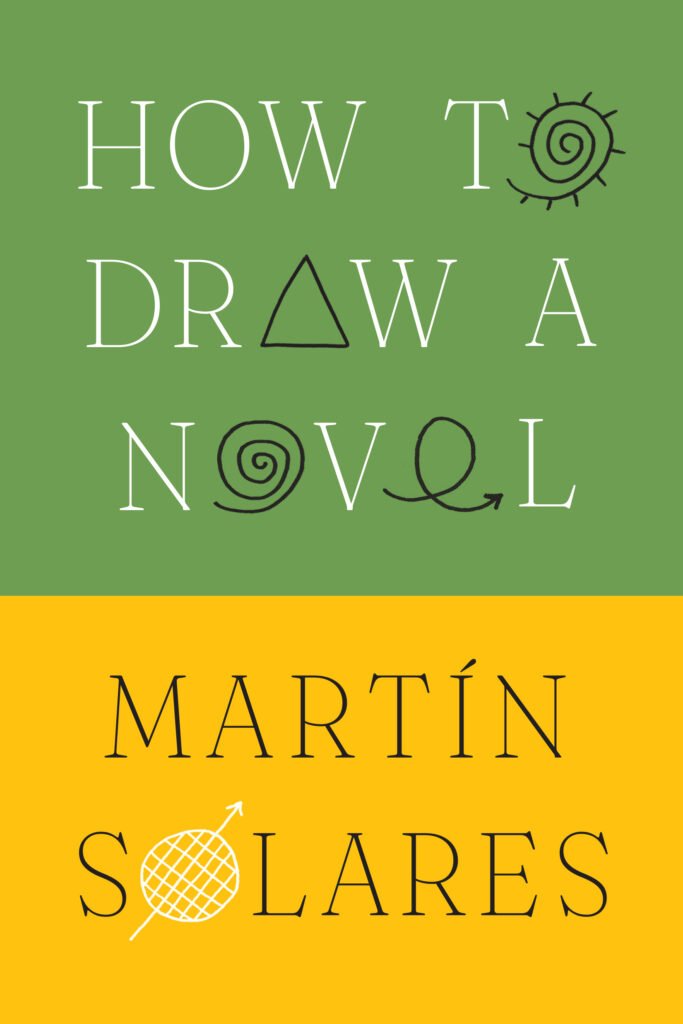
“Jack Kerouac produced the 320 pages of On the Road in three weeks, typing out fifteen pages per day on a thirty-six-yard-long roll of paper, while Marcel Proust wrote the more than 1.5 million words of In Search of Lost Time over the course of fourteen years…. Georges Simenon, who could finish a novel in just a month, wrote a whole one in twelve hours while sitting in the front window of a bookshop, on a bet. When Simenon died, it was thought he’d only published 192 novels, but his last well and testament reveals that the Belgian author had also written and published another 176 under twenty-seven different pseudonyms.” (p. 38-39)
Martin Solares, author of Don’t Send Flowers and The Black Minutes, discusses over a 100 novels and dozens of authors in How to Draw a Novel–although the doodles didn’t do much for me. Many of the books I’ve read like How to Draw a Novel center on “Major Writers” like Melville, Dostoyevsky, Hemingway, James Joyce, Dickens, Tolstoy, Poe, and Carlos Fuentes. But Solares includes writers like Stephen King, Philip K. Dick, Ray Bradbury, Hammett, Chandler, and Patricia Highsmith.
“Highsmith wrote some of her best novels from the perspective of a con man: the astonishing Tom Ripley, a character used to committing the most disturbing frauds, but who also affords himself the luxury of helping out an old friend who’s fallen on hard times. With Ripley, Highsmith deepens her exploration of what it means to live in aa world of hypocrisy and convention. No one narrates the sea of lies more powerfully than Patrica bismuth.” (p. 97)
Martin Solares includes insights into writers and their work on every page of How to Draw a Novel. This slim book is worth its weight in gold! GRADE: A
TABLE OF CONTENTS:
The welcome mat — 1
Doubles cast in shades of night — 4
Into the fog — 15
The novel as automobile — 38
A theory of evolution — 48
Blind and so mysteriously reserved — 52
How to draw a novel — 59
Structure’s ghost — 78
A journey around a tale — 110
Novelesque excitement — 133
A method for measuring novelesque excitement — 136
Device with lions — 138
Insults and images — 144
Tool for writing a novel — 154
The character tree — 156
The myth of the perfect novel — 158
Bomb theory, or how to end it all — 160
What lives at the bottom of the lagoon — 168
Once upon a time — 174
My uncle and the tiger — 177
Acknowledgments — 185
Notes — 187
Selected bibliography — 192
OK, sounds like my kind of book. I put it on hold.
Jeff, you’ll enjoy the wide range of novels discussed.
Looks interesting. Have to see if it is available through my library.
Steve, HOW TO DRAW A NOVEL received a positive review in The New York Times Book Review so I’m guessing the librarians in your area probably ordered it. The NYT Book Review is a key book selection tool Librarians rely on.
Me too. Thanks!
Patti, I’m sure you’ll like HOW TO DRAW A NOVEL.